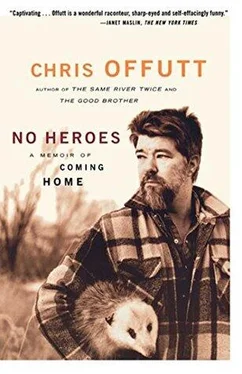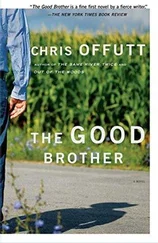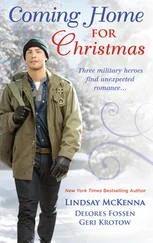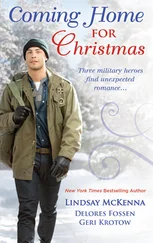Buffalo and Bearskin
Big Perry and Little Perry
Hogtown and Hogge Street
Grassy Lick, Clay Lick, Pond Lick, and Pattie’s Lick
Rice Loop and Sharkey
Dry Creek and Dry Branch
Hays Branch and Brushy
Rock Fork, Bull Fork, Open Fork
Sugar Loaf
Lower Licking
Morehead
Reading these made me feel like a solitary immigrant who’d found a fellow countryman and could finally talk the native tongue. I slipped the phone book beneath my pillow and went to sleep with the rhythms of home coursing through my head like a freight train.
In June, Rita and I packed a truck in the Rocky Mountains and began a three-day trek to the Appalachian Mountains. We had moved every year for a decade and believed that this was the last stop. I was delirious with the prospect of living in Kentucky. My mother always said a map of the state looked like a typewriter turned sideways, and I repeated this to my sons. Sam looked at me with a puzzled expression and said, “What’s a typewriter?”
At ages eight and five, Sam and James were too young to remember past visits, but they had heard me talk of Kentucky all their lives. It was the promised land of milk and honey. There were no bullies in paradise, no burglars, bad guys, or bums. Everyone loved children. The boys could walk barefoot, have pets, go fishing, explore the woods. They were, as Sam said, “totally psyched” to live there.
Twenty years ago I’d left on foot with a backpack and was now returning in a moving truck full of furniture. I also arranged for the transport of a 1968 Malibu — red with a black interior — that I had bought from two men who co-owned it in a Montana trailer park. It had a shifter kit, short pipes, a 327-cubic-inch engine, three moonie hubcaps, and a double-pump carburetor. Like me, the body was beat to pieces, but it could reach a hundred miles per hour in less than eight seconds, the perfect rig for the hills.
The mathematics of time is as arbitrary as it is precise. Depending on how you counted, I’d been gone five years since my last visit; ten years since getting married and living a few months on my home hill; or twenty years since I’d hitchhiked into America. To my neighbors I’d never left, but merely been visiting away for a spell. Until the Haldeman post office had closed, I still received mail there. I had left Kentucky several times forever. Now I was going back for good.
On the third day of travel we reached 1-64, the last leg of America’s interstate system, built while I was a kid. It was the widest road in the county and we called it “the fourlaner,” a verbal habit I had to break after leaving the hills and learning that four lanes was not all that big.
We crossed the dark and twisty Licking River into my home county. Early buds dappled the slopes with a gauze of green in the morning mist. Looming above the river was the Pottsdale Escarpment, a geographic formation that marked the eastern edge of the Appalachian Mountains. The escarpment rose from the land like a forbidding wall, a river of earth, a stone hieroglyph. Beyond it lay my past and future.
Rita loved the house, the private bath, the view of the woods. Never before had each boy had his own bedroom. The kitchen was big, the appliances new. We had a guest room, two bathrooms, a large garage, and a balcony overlooking a pond. The finished basement held a separate room that was ideal for writing.
The first night we ate pizza and went to bed early. James stirred in his bed, half asleep. I moved him crossways on the mattress and smoothed the old quilt. It was frayed and falling apart, but he insisted on sleeping with it despite the heat. A year before he asked why we owned such a ratty blanket, and I was embarrassed by the truth — it was all we could afford. Instead I told him it was my blanket as a child. Our family had no actual heirlooms, and this secondhand quilt was all he knew of an imagined past. Kentucky would give him history.
In two months I would turn forty years old. I felt fortunate to have everything I wanted — a family, a career, a house in the woods of home. The world at large called me a Kentuckian, but in the state, I was from Rowan County. Within that realm I was a Haldeman boy, and to the people there I was from the first hill above the school.
During the next few weeks Rita and the boys explored Morehead and visited my parents at the other end of the county. We unpacked slowly. I had never felt so happy, so enthusiastic for life. I intended to grow old here. I would be buried among the trees. Wildflowers would grow on my grave. Until then, I would help young people understand themselves, and provide an example of the potential for life beyond the hills. I had come home to give as much as possible. Eventually I might move into politics. As an insider, I knew more than anyone what the hills needed. Just as important, I knew what we didn’t need — no more sympathy, no more mindless federal programs, no more assistance by outsiders.
Morehead State University is a poor school in a poor state. Forty percent of people don’t finish high school, a low number compared to the surrounding area. Eastern Kentucky offers no models for success, no paths for ambitious people to follow, no tangible life beyond the county line. Doing well is a betrayal of mountain culture. Gaining money means you have screwed somebody over and going on vacation implies you don’t like living here. Most glaringly absent from eastern Kentucky is a sense of pride. I hoped to fix that.
A month after our arrival, Rita’s parents visited. They emigrated from Poland in 1946 and have lived in New York ever since. The first time I met them was on my birthday when Rita and I were dating in Manhattan. Her parents joined us at a restaurant. They were nearly seventy and still working twelve-hour days. Arthur was a chief draftsman for an architectural firm in the World Trade Center. Irene counseled terminal cancer patients at Memorial Sloan-Kettering Hospital. Over supper, Arthur mentioned that his brother had the same birthday as mine.
“He must be a great guy,” I said.
Everyone stared at their plates. A palpable tension filled the air. I didn’t know what had happened until Irene spoke.
“He was,” she said. “He was a nice boy. He died in the camps. So sad.”
“Yes,” I said. “I’m sorry.”
Just as rapidly the discomfort faded and the meal progressed with renewed cheer. I cursed myself for having forgotten that both her parents were Holocaust survivors. Everyone else in their family had been murdered by the Nazis. Arthurs brother simply disappeared, leaving Arthur with the wisp of hope that his brother was still living.
Arthur drives German cars. He shops as if he’s still in Europe, with stops at the bakery, the deli, the fruit and vegetable stand. He chats with the shopkeepers like they are close friends. He and Irene seldom disagree, but when they do, they speak Polish. They enjoy giving presents. They never laugh.
Mirrors line the walls of their duplex. The bathroom has three mirrors, and one entire wall of the dining room is paneled in reflective glass. I wondered if this lent the illusion of space or reminded Arthur and Irene of their own existence. Their youth was spent in deprivation wearing rags. Now they are always impeccably dressed and groomed, hair combed, nails clipped, necks scented with cologne. I have never seen Arthur without his shirt tucked into freshly pressed pants held in place by a shiny belt. Irene’s hair invariably appears beauty shop perfect. Her clothes fit well, are tasteful and stylish.
Arthur and Irene have drawn a line through time— before the war and after the war. For fifty years they lived under the protection of the Statue of Liberty. In Kentucky, they each agreed to tell me their story. I went to town and bought a microcassette recorder. I began to listen.
Читать дальше












